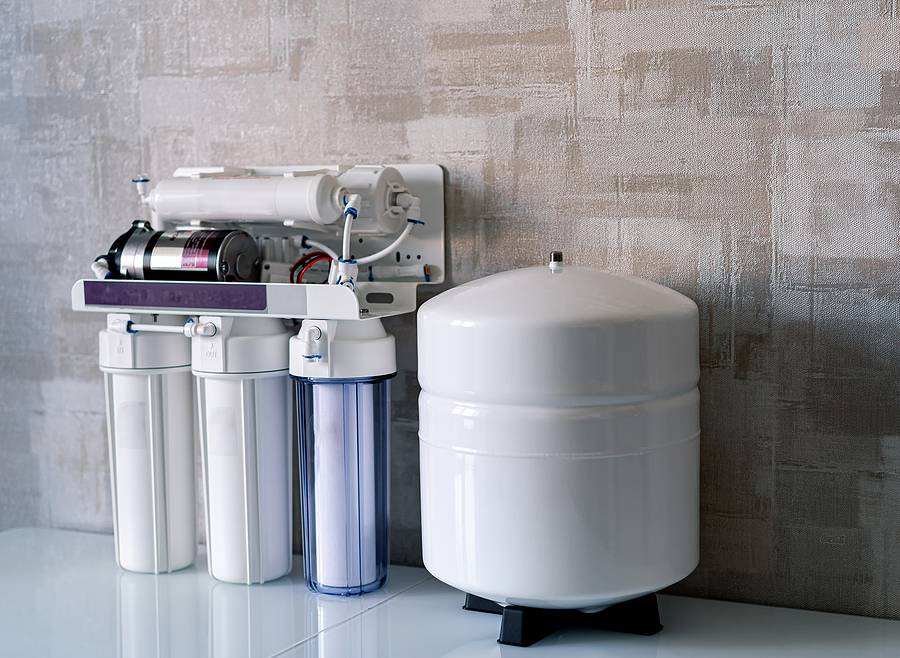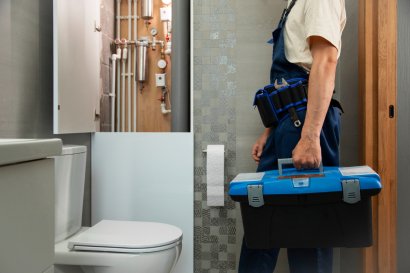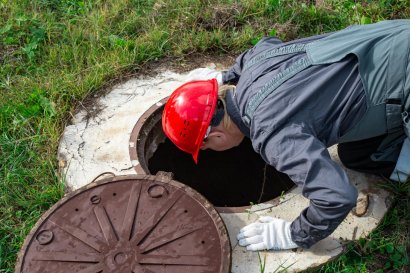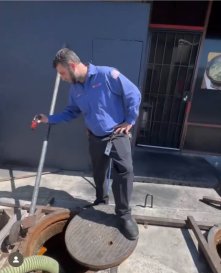Menu
- Home
- Plumbing Services
- Smart Water Shut Off Installation
- Water Filtration Installation
- Plumbing Repair
- Faucet & Kitchen Sink
- Toilet Replacement
- Sump Pump Installation
- Garbage Disposal Replacement
- Drain Cleaning
- Yard Drains
- Water Heaters
- Video Camera Inspection
- Leak Detection
- Sewer Line Repair
- Pipe Lining
- Hydro Jetting
- Copper Repiping
- Electronic Leak & Sewer Locating
- Gas Line Repair
- Trenchless Pipe Replacement
- Septic
- Financing
- Reviews
- Coupons
- Blog
- Locations
- Service Areas
- Acton, CA
- Agoura Hills, CA
- Agua Dulce, CA
- Alhambra, CA
- Altadena, CA
- Anaheim, CA
- Arcadia, CA
- Azusa, CA
- Baldwin Park, CA
- Beverly Hills, CA
- Buena Park, CA
- Burbank, CA
- Calabasas, CA
- Camarillo, CA
- Canoga Park, CA
- Castaic, CA
- Chatsworth, CA
- Chino Hills, CA
- Costa Mesa, CA
- Covina, CA
- El Monte, CA
- El Rio, CA
- Fillmore, CA
- Fountain Valley, CA
- Fullerton, CA
- Garden Grove, CA
- Glendale, CA
- Glendora, CA
- Granada Hills, CA
- Hawthorne, CA
- Hollywood, CA
- Huntington Beach, CA
- Inglewood, CA
- La Canada Flintridge, CA
- La Habra, CA
- La Mirada, CA
- La Puente, CA
- La Verne, CA
- Lakewood, CA
- Long Beach, CA
- Los Angeles, CA
- Malibu, CA
- Monrovia, CA
- Montebello, CA
- Monterey Park, CA
- Moorpark, CA
- Newhall, CA
- Newport Beach, CA
- North Hollywood, CA
- Northridge, CA
- Oak View, CA
- Orange County, CA
- Orange, CA
- Oxnard, CA
- Pacific Palisades, CA
- Pacoima, CA
- Palmdale, CA
- Pasadena, CA
- Pico Rivera, CA
- Placentia, CA
- Pomona, CA
- Port Hueneme, CA
- Reseda, CA
- Rowland Heights, CA
- San Dimas, CA
- San Fernando, CA
- San Gabriel, CA
- Santa Ana, CA
- Santa Clarita, CA
- Santa Monica, CA
- Santa Paula, CA
- Santa Rosa Valley, CA
- Saticoy, CA
- Septic Pumping in Culver City, CA
- Septic Pumping in Diamond Bar, CA
- Septic Service in Downey, CA
- Sherman Oaks, CA
- Simi Valley, CA
- Somis, CA
- Studio City, CA
- Sun Valley, CA
- Sunland, CA
- Sylmar, CA
- Tarzana, CA
- Thousand Oaks, CA
- Topanga, CA
- Torrance, CA
- Tujunga, CA
- Tustin, CA
- Van Nuys, CA
- Venice, CA
- Ventura, CA
- West Covina, CA
- West Hollywood, CA
- West Los Angeles, CA
- Westminster, CA
- Whittier, CA
- Woodland Hills, CA
- About Us
- Videos
- Contact Us
Call This Saturday to Get $50 Off Any service over $500
Call This Saturday to Get
$
Any service over $500 50
Off
Need an Emergency Plumber? Call
844-468-4343Financing Available (Subject to Credit Approval)
Book Online- Home
- Services
- Smart Water Shut Off Installation
- Water Filtration Installation
- Plumbing Repair
- Faucet & Kitchen Sink
- Toilet Replacement
- Sump Pump Installation
- Garbage Disposal Replacement
- Drain Cleaning
- Yard Drains
- Water Heaters
- Video Camera Inspection
- Leak Detection
- Sewer Line Repair
- Pipe Lining
- Hydro Jetting
- Copper Repiping
- Electronic Leak & Sewer Locating
- Gas Line Repair
- Trenchless Pipe Replacement
- Septic
- Reviews
- Coupons
- Blog
- Locations
- Service Areas
- Acton, CA
- Agoura Hills, CA
- Agua Dulce, CA
- Alhambra, CA
- Altadena, CA
- Anaheim, CA
- Arcadia, CA
- Azusa, CA
- Baldwin Park, CA
- Beverly Hills, CA
- Buena Park, CA
- Burbank, CA
- Calabasas, CA
- Camarillo, CA
- Canoga Park, CA
- Castaic, CA
- Chatsworth, CA
- Chino Hills, CA
- Costa Mesa, CA
- Covina, CA
- El Monte, CA
- El Rio, CA
- Fillmore, CA
- Fountain Valley, CA
- Fullerton, CA
- Garden Grove, CA
- Glendale, CA
- Glendora, CA
- Granada Hills, CA
- Hawthorne, CA
- Hollywood, CA
- Huntington Beach, CA
- Inglewood, CA
- La Canada Flintridge, CA
- La Habra, CA
- La Mirada, CA
- La Puente, CA
- La Verne, CA
- Lakewood, CA
- Long Beach, CA
- Los Angeles, CA
- Malibu, CA
- Monrovia, CA
- Montebello, CA
- Monterey Park, CA
- Moorpark, CA
- Newhall, CA
- Newport Beach, CA
- North Hollywood, CA
- Northridge, CA
- Oak View, CA
- Orange County, CA
- Orange, CA
- Oxnard, CA
- Pacific Palisades, CA
- Pacoima, CA
- Palmdale, CA
- Pasadena, CA
- Pico Rivera, CA
- Placentia, CA
- Pomona, CA
- Port Hueneme, CA
- Reseda, CA
- Rowland Heights, CA
- San Dimas, CA
- San Fernando, CA
- San Gabriel, CA
- Santa Ana, CA
- Santa Clarita, CA
- Santa Monica, CA
- Santa Paula, CA
- Santa Rosa Valley, CA
- Saticoy, CA
- Septic Pumping in Culver City, CA
- Septic Pumping in Diamond Bar, CA
- Septic Service in Downey, CA
- Sherman Oaks, CA
- Simi Valley, CA
- Somis, CA
- Studio City, CA
- Sun Valley, CA
- Sunland, CA
- Sylmar, CA
- Tarzana, CA
- Thousand Oaks, CA
- Topanga, CA
- Torrance, CA
- Tujunga, CA
- Tustin, CA
- Van Nuys, CA
- Venice, CA
- Ventura, CA
- West Covina, CA
- West Hollywood, CA
- West Los Angeles, CA
- Westminster, CA
- Whittier, CA
- Woodland Hills, CA
We Cover All The Cities In Orange, Los Angeles & Ventura Counties
- About Us
- Videos
- Financing
- Contact Us






.jpg)
